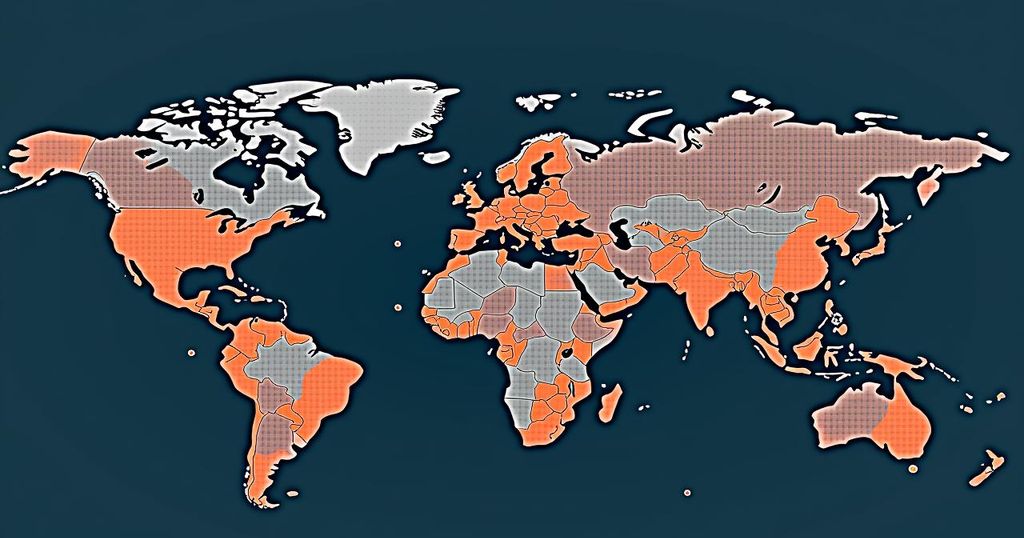Global Spread of Mpox and New Variant Concerns

Mpox cases have been reported internationally, with Sweden, Thailand, the Philippines, and Pakistan confirming instances outside Africa. The WHO has labeled mpox as a public health emergency amid rising concerns over a new, potentially deadlier variant. The DRC remains the epicenter of this outbreak, which has predominantly affected children. Clade 1 and Clade 2 variants present varying levels of severity, with the latter having caused more frequent infections in numerous countries since 2022. Meanwhile, Europe and the Americas remain vigilant to potential cases.
The mpox virus has seen a rapid international spread, including a newly identified strain potentially more lethal than previous variants. As of now, Sweden, Thailand, the Philippines, and Pakistan have confirmed mpox cases outside of Africa, while fourteen African nations report infections. The World Health Organization (WHO) classifies the situation as a public health emergency of international concern. While the WHO reassures that mpox is not to be equated with COVID-19, it has declared the emergence of Clade 1, a more severe variant, as a significant threat due to its mode of transmission through skin-to-skin contact. Beginning in 2022, mpox spread across Africa, with its origins traced back to the Democratic Republic of the Congo (DRC). The emergence of the Clade 1b variant in 2023 has heightened concerns, particularly as neighboring nations such as Kenya, Rwanda, and Uganda have reported new cases after remaining infection-free since the outbreak commenced. The DRC has faced the brunt of this outbreak, constituting 96 percent of reported cases across Africa, and has declared an epidemic due to the thousands infected, considerably affecting children. In Asia, the emergence of the Clade 1b strain has been confirmed in Thailand, associated with a returning traveler from Africa. The Philippines and Pakistan also reported cases related to the milder Clade 2 variant, which had previously sparked a multicountry outbreak. Conversely, Europe has registered a limited number of cases, with only one instance reported in Sweden. Health authorities indicate an expectation of increased cases in Europe given the extensive travel between Africa and the continent, though with effective testing and contact tracing measures, the risk of sustained transmission might remain low. While no new cases have emerged in the Americas, health officials advise vigilance regarding potential infections. Currently, mpox has not been reported in Oceania or the Middle East, indicating a segmented global impact.
Mpox, previously known as monkeypox, is a viral disease that has been spreading globally since its expansion from Africa in 2022. The latest outbreak has unveiled two distinct variants: Clade 1 is believed to be the more severe of the two, causing fatal infections in 3.9 percent of cases compared to just 0.2 percent for Clade 2. Areas of western and central Africa, notably the Democratic Republic of the Congo (DRC), have been severely impacted, triggering declarations of epidemics and international concern. The region’s health systems face significant strain due to the high volume of cases, predominantly among children. As global travel resumes, the risk of cross-border transmission of these variants remains a topic of concern for public health officials and international organizations like the WHO.
In summary, the ongoing mpox outbreak illustrates an urgent public health crisis, particularly in Africa, where the DRC remains the epicenter of infections. The spread of the Clade 1 variant, now confirmed in multiple countries outside Africa, has warranted significant attention from the WHO and health authorities globally. Continuous monitoring and effective response strategies are essential to contain this evolving health threat and prevent further outbreaks. The interconnectedness of global travel necessitates a careful watch on emerging cases, as identification and management strategies become crucial in curbing the spread of this disease.
Original Source: www.aljazeera.com







